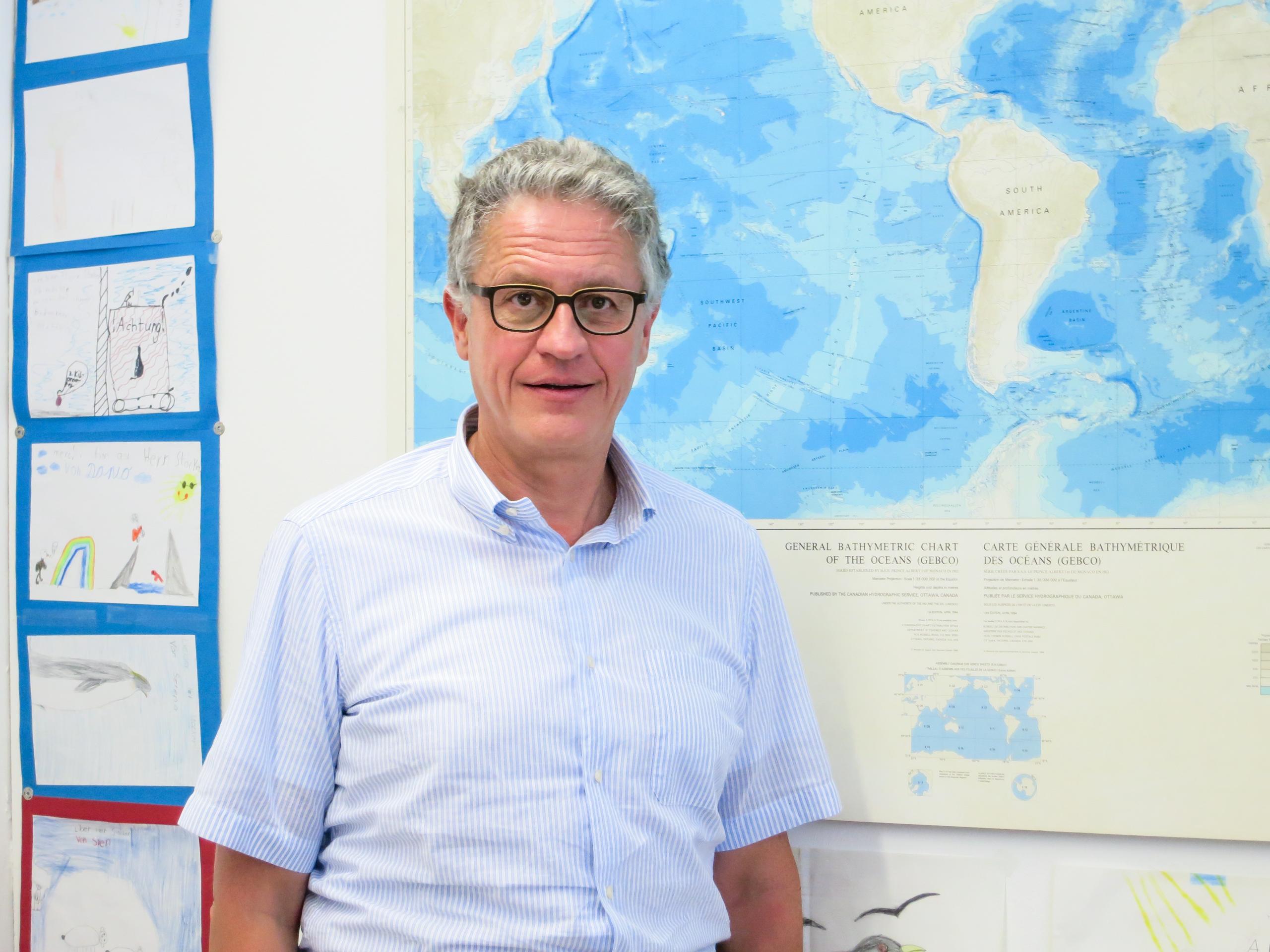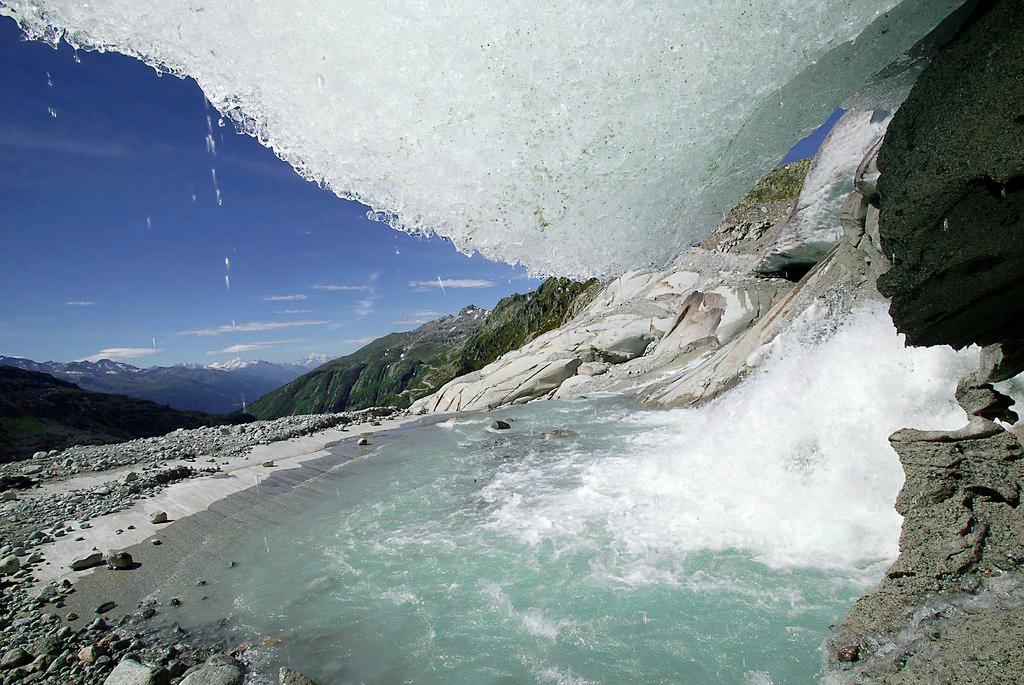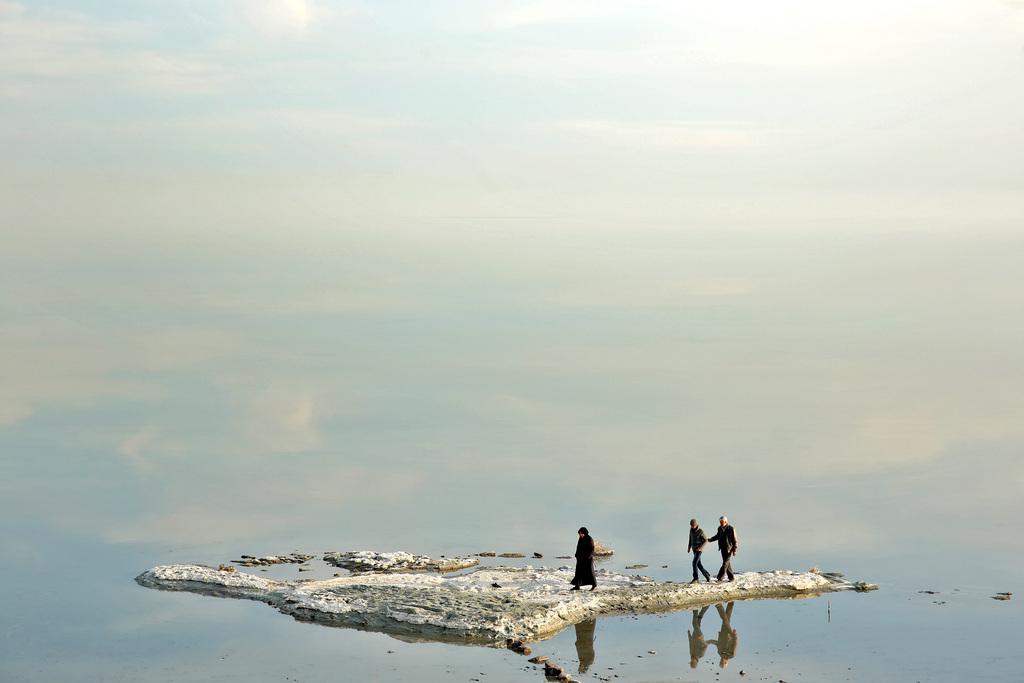Swiss candidate says his ‘chances are intact’ to lead top climate panel

Swiss climate researcher Thomas Stocker is confident about his candidacy for the chair of the Intergovernmental Panel on Climate Change (IPCC), prior to a decision being made in early October. swissinfo talks to the University of Bern professor as he winds up his campaign.
His global publicity tour has already taken him to Saudi Arabia, Qatar, Egypt, Turkey, Argentina, Brazil, Indonesia, China, Japan, Russia, Germany, France, the Maldives, Pakistan, India and Thailand – and the list goes on. During his campaign, Stocker has actually visited 30 countries and contacted ten by phone.
Eloquent, dynamic, ambitious, Thomas Stocker remains calm and collected about his odds at being chosen. “My chances are intact. You have to bear in mind though that heading the IPCC does not only require professional and personal skills but also entails political components,” comments Stocker, who was nominated for the position by the Swiss government in February this year.
The climate physicist believes that by being a neutral country, untied to any political bloc, while hosting the international community in Geneva and having a strong commitment to the United Nations, Switzerland is in a favourable position to win the nomination.
Six candidates vie to become IPCC chair
The election of the new IPCCExternal link chair is expected to take place at the body’s annual plenary meeting in Dubrovnik, Croatia, from October 5-8. Aside from the Swiss climate scientist Thomas Stocker, the other contenders for undoubtedly the top job among climate researchers are from South Korea, USA, Belgium, Austria and Montenegro and Sierra Leone.
The 34 members of the IPCC bureau, which provides scientific and technical guidance to the panel, will also be elected in Dubrovnik.
Governments of various countries have nominated their own candidates. Each of the 195 member countries of the IPCC has one vote.
Meanwhile, the other candidates are not losing any time and are also trying to win countries’ votes by travelling around the world. The Swiss researcher does not know – or rather prefers not to know – whether all the campaigning is being done by fair means. “Other countries use different levers. I am pretty sure that some propose deals, such as financially supporting the establishment of controlling stations. Switzerland doesn’t do that.”
Stocker is very well aware of the fact that his campaign marathon, financed by federal funds, has a somewhat negative effect on his carbon footprint, and it has been noticed. “Once you are in such a position it’s important to actually go and visit the countries. Getting in touch from afar doesn’t do the trick.” He stresses that CO2 emissions from every flight taken during campaigning have been offset.
Role of scientists “clearly defined”
Beyond that, Stocker tries hard to keep his carbon footprint to a minimum. He rides his bicycle to work, prioritises energy efficiency and waste management, buys his meat from the local butcher in the Emmental region and does not buy Peruvian asparagus in winter. “I am environmentally conscious, but I am neither a pioneer nor a missionary.”
While the press has been generally kind to him, a few critical voices prevail. He has been referred to as political activist or ‘victim of his mission’ and has been mockingly dubbed preacher and fortune-teller. The weekly magazine Weltwoche, close to the conservative right Swiss People’s Party, has made him a target for criticism. Stocker responded to such by saying: “Fantasy has no limits and I accept that,” and emphasised that he does not put too much thought to such comments.
“We have a clearly defined role: the area us scientists work in is extremely relevant to our society. The core business of the IPCC is to assess information and research results and advise decision-makers and the public. If I were an activist, I would join an NGO.”
Stocker does not deny his somewhat missionary mindfulness and the fact that he has always been very ambitious. Although he is prepared to work abnormally long hours, he enjoys every single step along the way.
His mission is clear: he wants to curb climate change, reduce CO2 emissions and save the oceans. However, he does not want to get involved in politics. “In my work I have never felt any political or economic pressure.”
A ray of hope
Regarding the international climate change conferenceExternal link in Paris in December, Stocker remains cautiously optimistic – and not only because of President Obama’s ‘Clean Power Plan’. His optimism derives rather from the mutual climate declaration submitted by China and the USA and the fact that other nations, first of all Switzerland, have presented their emissions reduction plans. “These signs are all positive. However, they are only initial steps and we still have a long way to go. We need specific action. We are running out of time.”

More
Question time with Thomas Stocker
Googling the encyclopaedia
Born in Zurich, Thomas Stocker has always been inquisitive. At the age of ten he wanted to know everything about the moon landing and the Apollo space programme. “I read and collected newspaper clippings, made drawings and archived everything in an A4 notebook. I spent whole afternoons leafing through the 24 volumes of the Brockhaus encyclopaedia, which we had at home. I did research and I was hungry for information – I was literally ‘googling’ the encyclopaedia.”
Once at high school he started to develop a scientific awareness of his surroundings through physics, biology and chemistry. He has always been curious, but stresses that he avoided being too stubborn. Though he doesn’t engage in excessive sports, he cycles to work, swims one kilometre on a warm summer evenings and would climb the Morgenberghorn in the Bernese Oberland with his wife at least once a year to “check his fitness level”.
Stocker says that finding pleasure and enjoyment in everything he does is paramount. “I don’t count the calories when I devour pasta and drink a good glass of wine. Cherry picking is the greatest threat to our health.”
The race for the most popular climate job
The IPCC chair is due to be selected at the beginning of October in Dubrovnik. If Thomas Stocker is chosen, he will have to cut down his work at the University of Bern’s climate and environmental physics department.
But what happens if he doesn’t get elected? “I would obviously be disappointed as I have been very involved and invested myself.” However, he emphasises that his life and fulfilment did not depend on the prestigious post. “I have a lot of other projects, such as the one in Antarctica, where I am part of a European research consortium looking for the world’s oldest ice.”
Biography
Thomas Stocker was born in Zürich, Switzerland and obtained a PhD in natural sciences from the Swiss Federal Institute of Technology in Zurich (ETH) in 1987. He has held research positions at University College London, McGill University in Montreal and Columbia University in New York. Since 1993 he has been professor of climate and environmental physicsExternal link at the University of Bern.
After earlier involvement in the Intergovernmental Panel on Climate Change (IPCC) of the United Nations, he was elected to chair the IPCC Working Group IExternal link in 2008. Together with Qin Dahe from China, Stocker led a team of more than 250 authors gathering the scientific foundation for the IPCC’s Fifth Assessment Report.
Stocker has also won various awards for his research – among them the National Latsis Prize. In 2007, the Nobel Peace Price was awarded jointly to the IPCC and the former US vice president Al Gore, for their contributions to climate change awareness.

In compliance with the JTI standards
More: SWI swissinfo.ch certified by the Journalism Trust Initiative













You can find an overview of ongoing debates with our journalists here . Please join us!
If you want to start a conversation about a topic raised in this article or want to report factual errors, email us at english@swissinfo.ch.